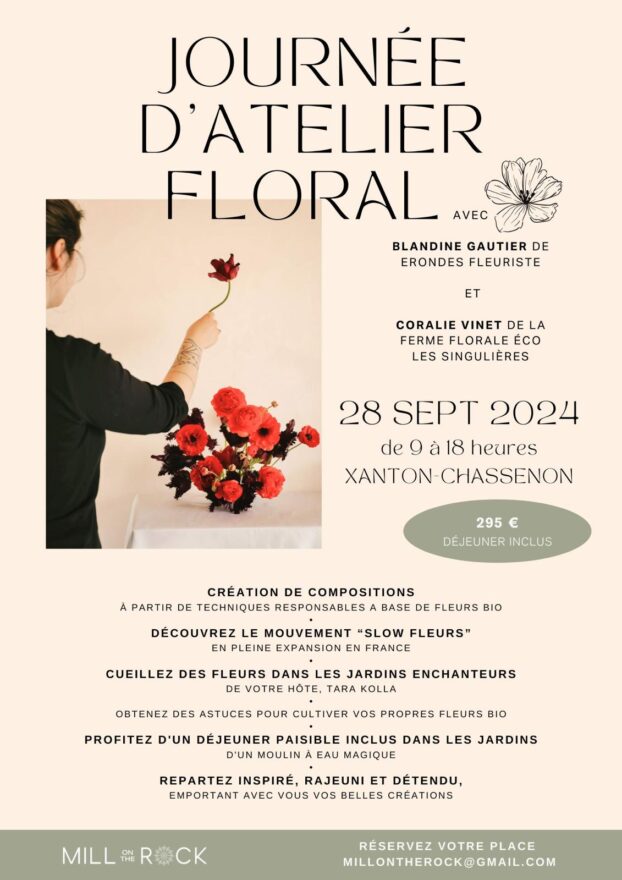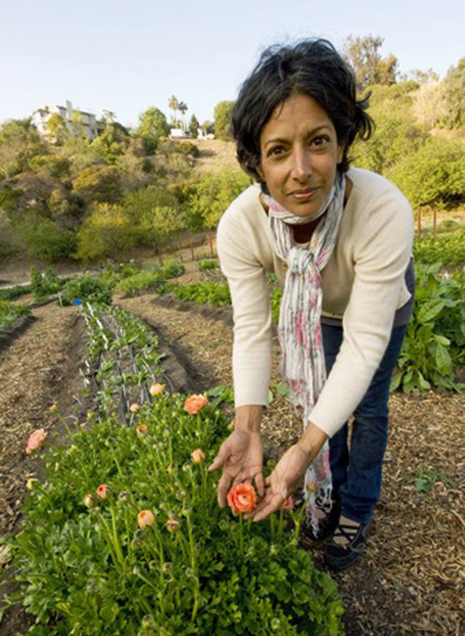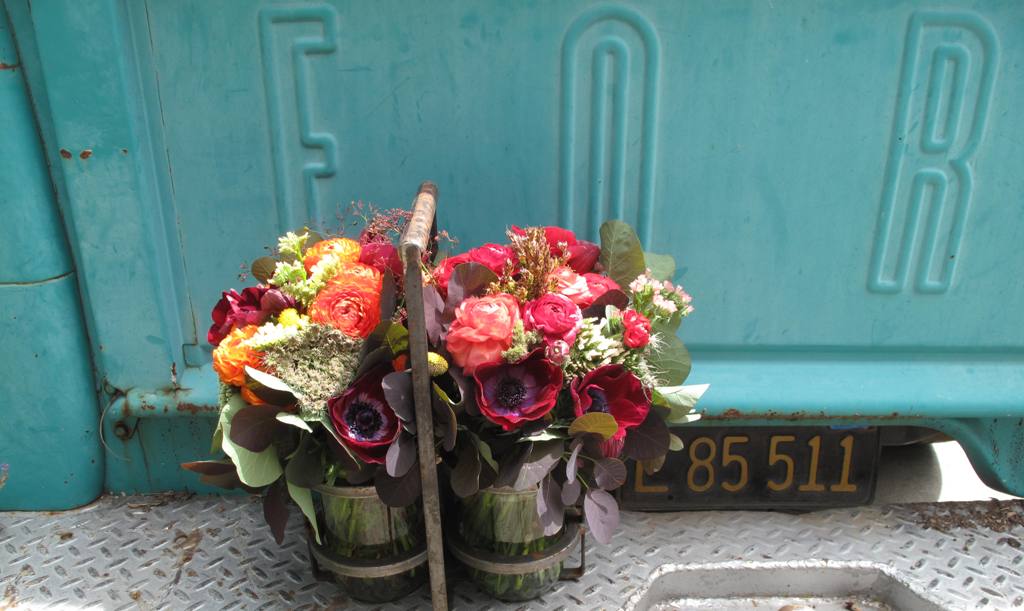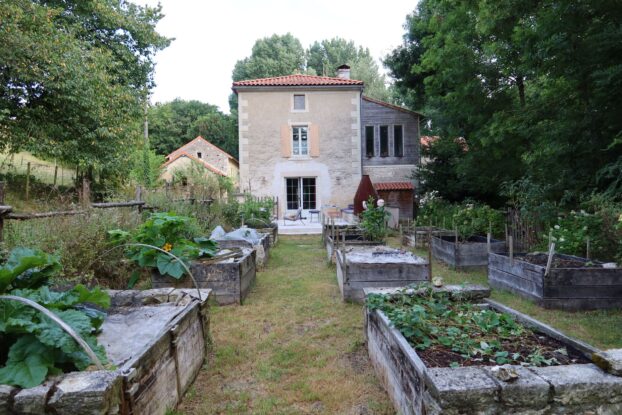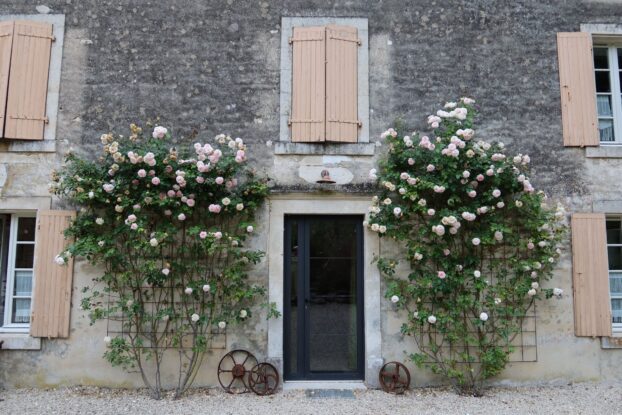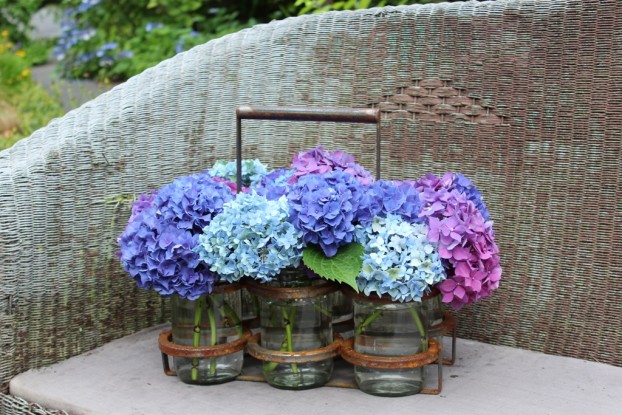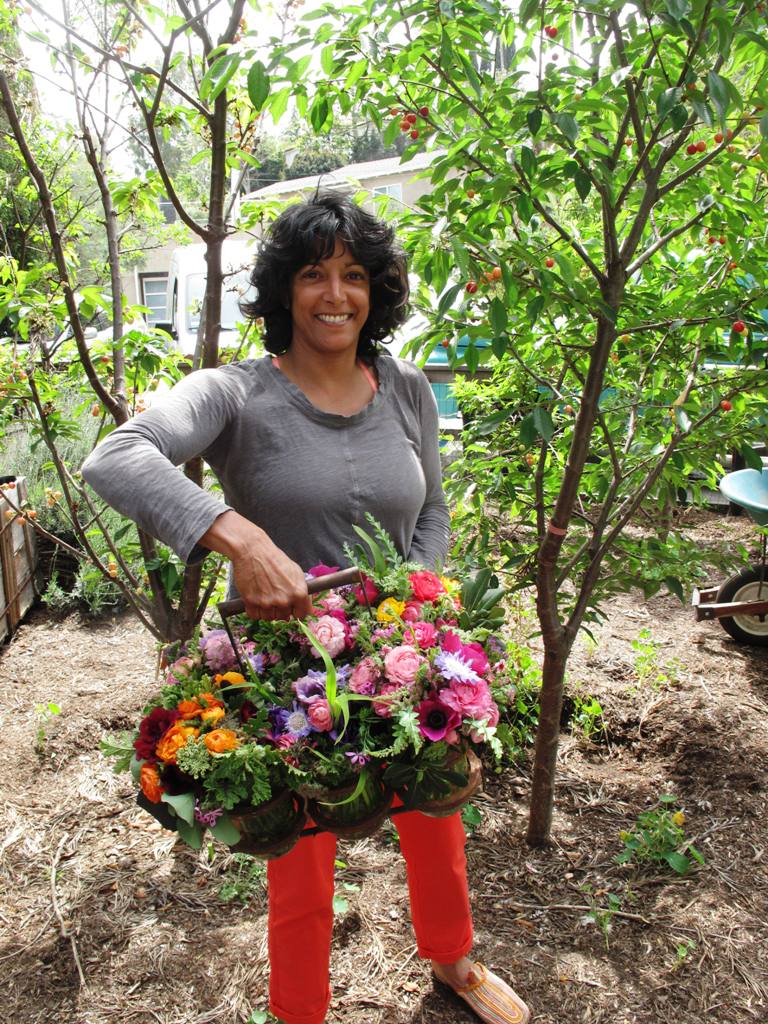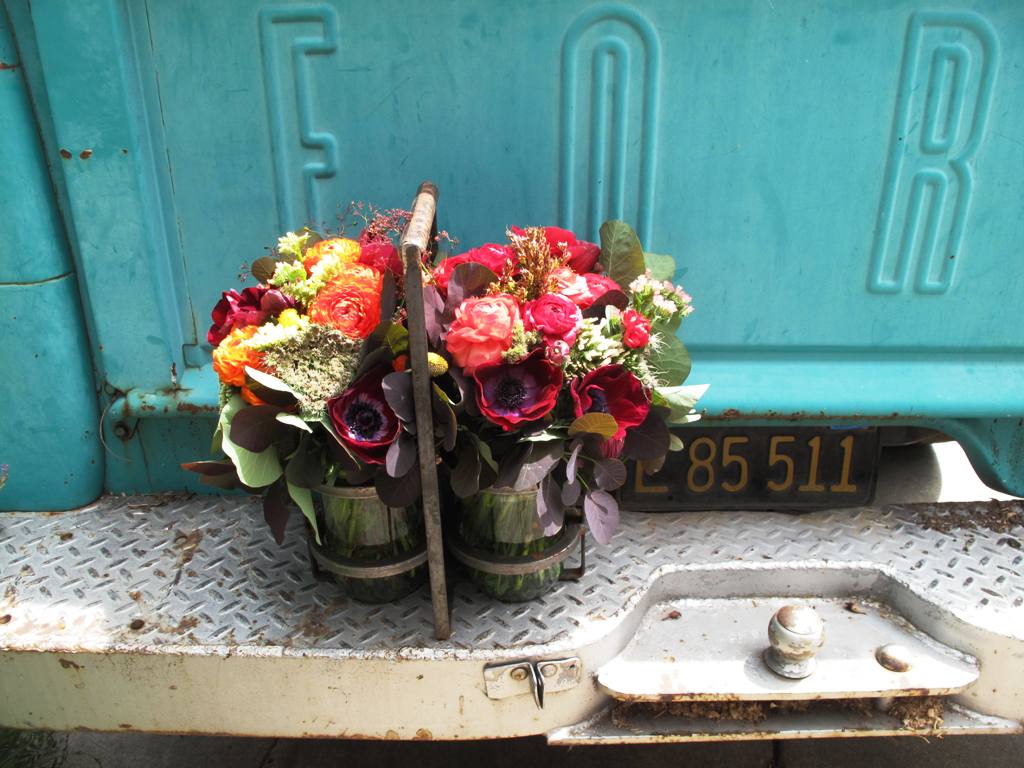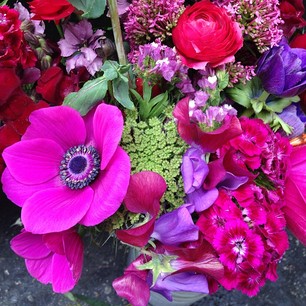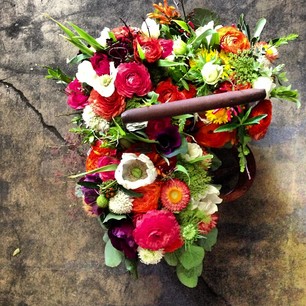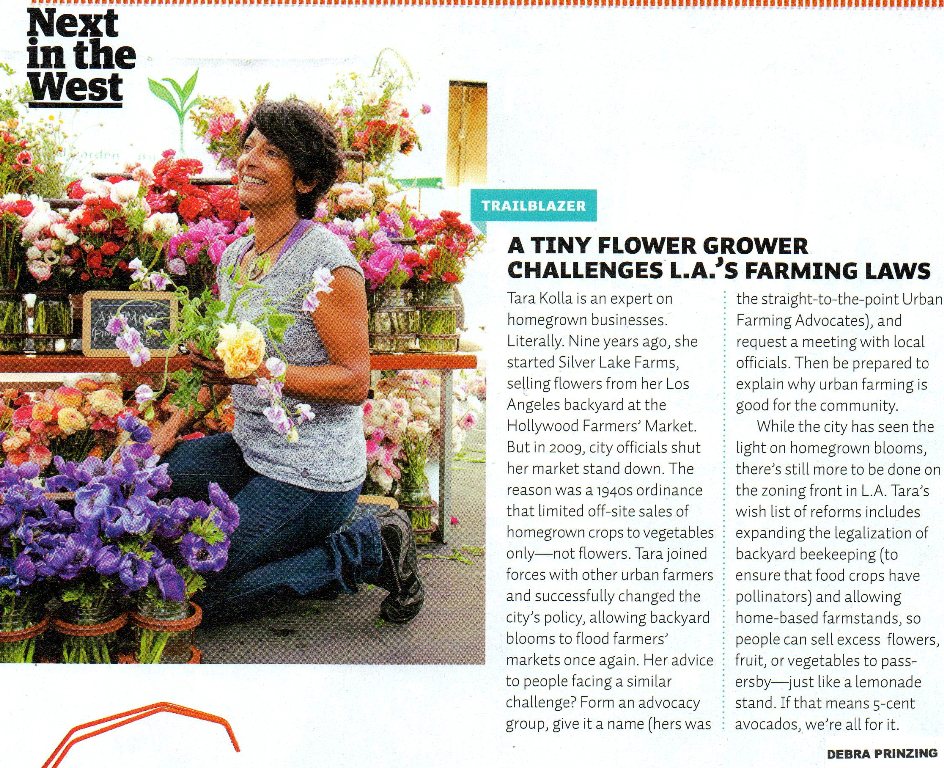Podcast: Play in new window | Download
Subscribe: Apple Podcasts | Podcast Index | RSS | More
We know that there’s been widespread embrace of the Slow Flowers Movement across the world, especially in countries that have seen their flower production move overseas. While the concept of Slow Flowers started right here, the term and philosophy have been adopted and embraced worldwide – and we definitely take credit! It’s inspiring to meet folks across the globe who are bringing local flowers to their communities – and today, you’ll meet Coralie Vinet, an organic flower farmer and farmer-florist in Western France, whose farm I recently visited.
Last week, you joined my visit to the magical place called Mill on the Rock with Tara Kolla, as we discussed her journey from owning Los Angeles-based Silver Lake Farm to her idyllic destination venue in Western France.
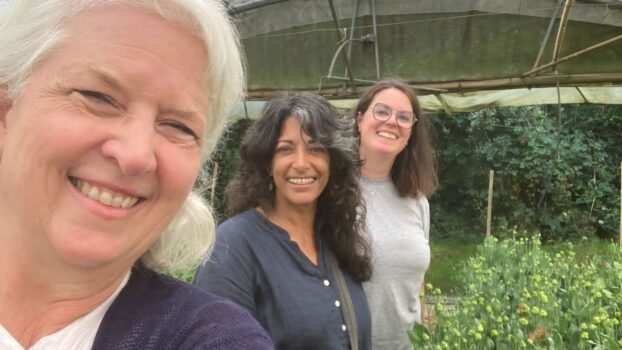
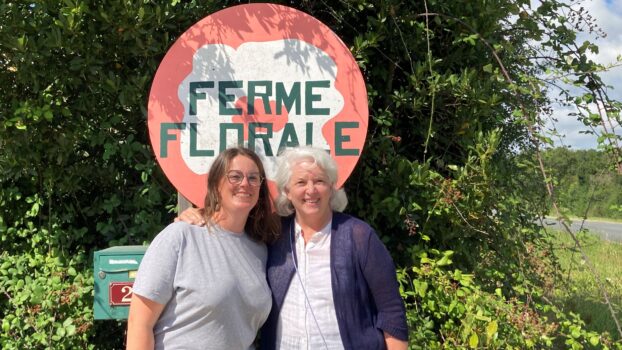
And this week, I’m sharing the other stop on that trip – to visit to Les Singulières Ferme Florale and a conversation with organic flower farmer Coralie Vinet.
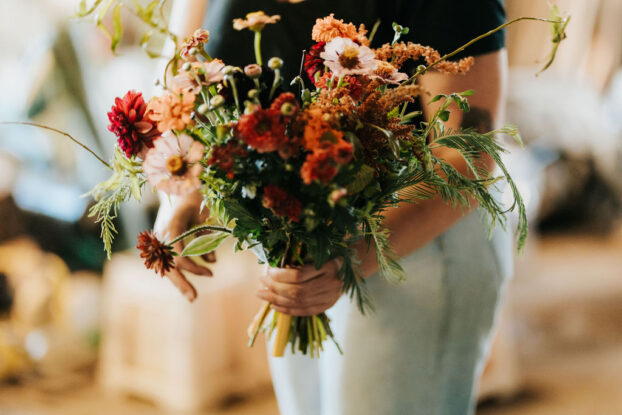
After fifteen years as a florist working in various craft shops in the Grand-Ouest region of France, Coralie returned to the origins of plants, driven by her human and ecological convictions. She created “Les Singulières” a flower farm in April 2022. Now in her third season, Coralie writes this on her website:
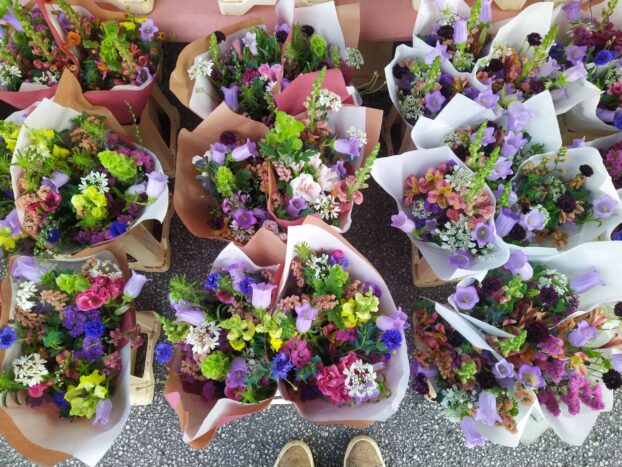
“We cultivate seasonal organic flowers in the Vendée climate, respecting the soil and its biodiversity. Our production technique has a low ecological impact as we produce unique, imperfect and poetic flowers. We offer farm bouquets, naturally composed of wild flowers. Inspired by SLOW FLOWERS, our floral production respects the environment and its resources.”
In this interview, you’ll also hear the voice of Tara Kolla, who both introduced me to Coralie, she also provided French-to-English translation for the interview. Let’s jump right in and get started – and meet Coralie and Tara.
You’ll also find links to details about the upcoming Flower Art Workshop, taking place at Mill on the Rock on September 28th.
The session includes lessons in hand-held bouquet-making, wreath creation and vase composition. Lunch and snacks are included, plus tips for growing your own as well as a flower foraging as you are invited to wander through Tara’s garden at Mill on the Rock.
If you’re in Europe, it’s just a day’s trip to attend – and I encourage you to check it out!
Find and follow Corlie on Instagram and Facebook
Thank you to our Sponsors
This show is brought to you by Slowflowers.com, the free, online directory to more than 750 florists, shops, and studios who design with local, seasonal and sustainable flowers and to the farms that grow those blooms. It’s the conscious choice for buying and sending flowers.
Thank you to our lead sponsor, Flowerbulb.eu and their U.S. lily bulb vendors. One of the most recognizable flowers in the world, the lily is a top-selling cut flower, offering long-lasting blooms, year-round availability, and a dazzling petal palette. Flowerbulb.eu has partnered with Slow Flowers to provide beautiful lily inspiration and farming resources to help growers and florists connect their customers with more lilies. Learn more at Flowerbulb.eu.
Thank you to the Seattle Wholesale Growers Market, a farmer-owned cooperative committed to providing the very best the Pacific Northwest has to offer in cut flowers, foliage and plants. The Growers Market’s mission is to foster a vibrant marketplace that sustains local flower farms and provides top-quality products and service to the local floral industry. Visit them at seattlewholesalegrowersmarket.com.
And thank you to Longfield Gardens, which provides home gardeners with high quality flower bulbs and perennials. Their online store offers plants for every region and every season, from tulips and daffodils to dahlias, caladiums and amaryllis. Check out the full catalog at Longfield Gardens at longfield-gardens.com.
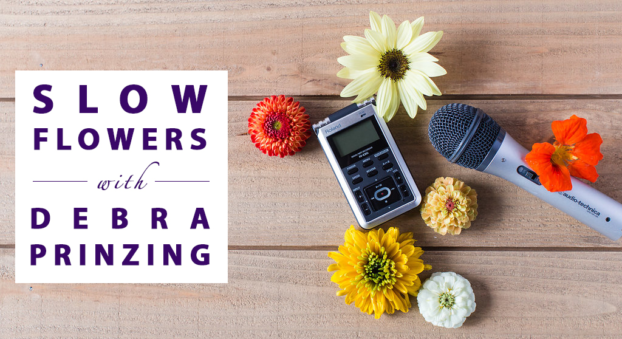
I’m so glad you joined us today! The Slow Flowers Podcast is a member-supported endeavor, downloaded more than one million times by listeners like you. Thank you for listening, commenting and sharing – it means so much. As our movement gains more supporters and more passionate participants who believe in the importance of our domestic cut flower industry, the momentum is contagious. I know you feel it, too. If you’re new to our weekly Show and our long-running Podcast, check out all of our resources at SlowFlowersSociety.com
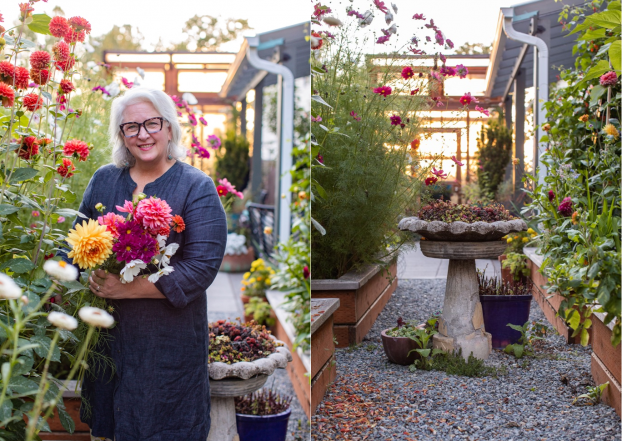
I’m Debra Prinzing, host and producer of the Slow Flowers Show & Podcast. The Slow Flowers Podcast is engineered and edited by Andrew Brenlan. The content and opinions expressed here are either mine alone or those of my guests alone, independent of any podcast sponsor or other person, company or organization. Next week, you’re invited to join me in putting more Slow Flowers on the table, one stem, one vase at a time. Thanks so much for joining us today and I’ll see you next week!
Music Credits:
Drone Pine; Gaena; Rue Severine
by Blue Dot Sessions
http://www.sessions.blue
Lovely
by Tryad
http://tryad.bandcamp.com/album/instrumentals
http://creativecommons.org/licenses/by-sa/3.0/
In The Field
audionautix.com









